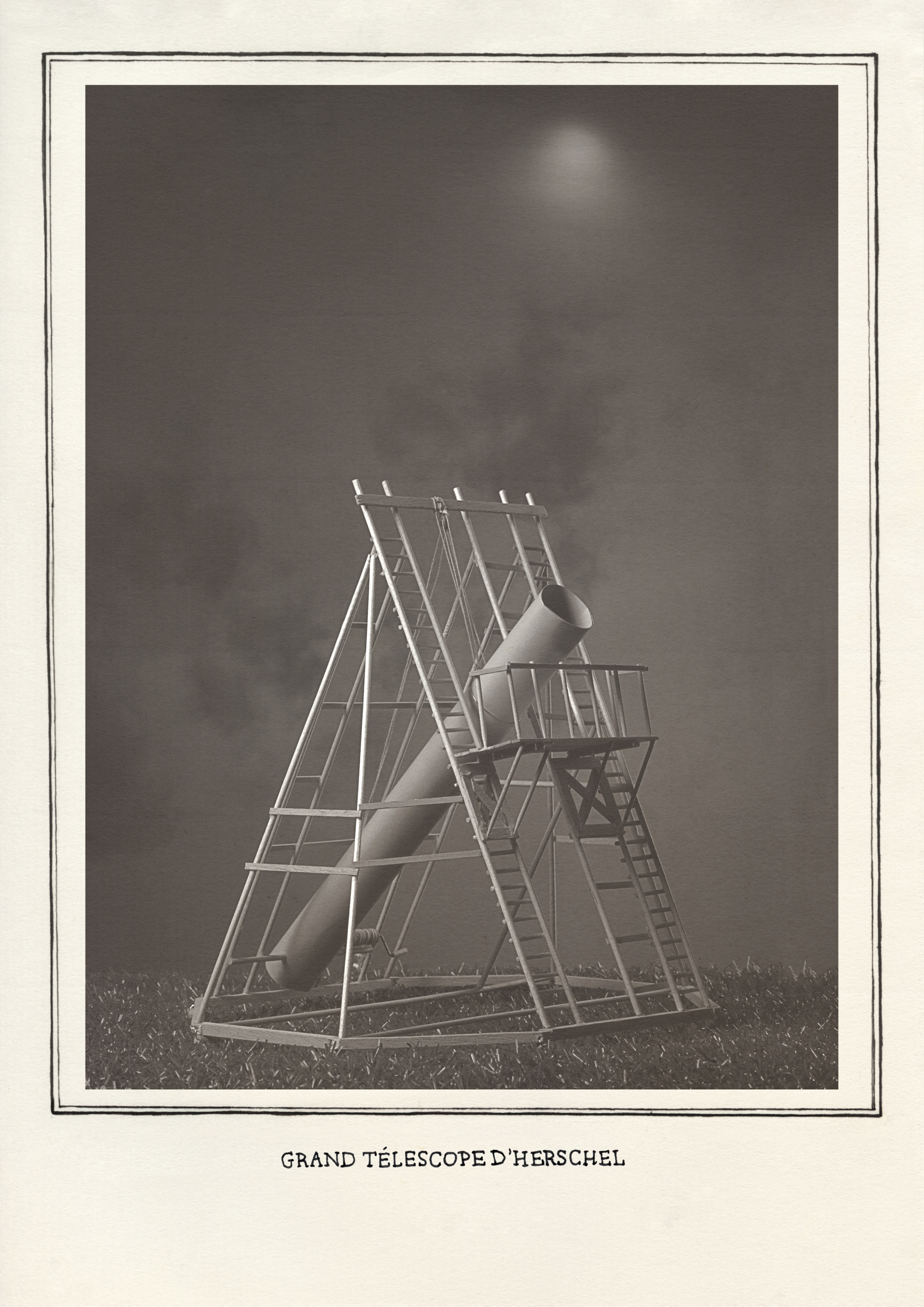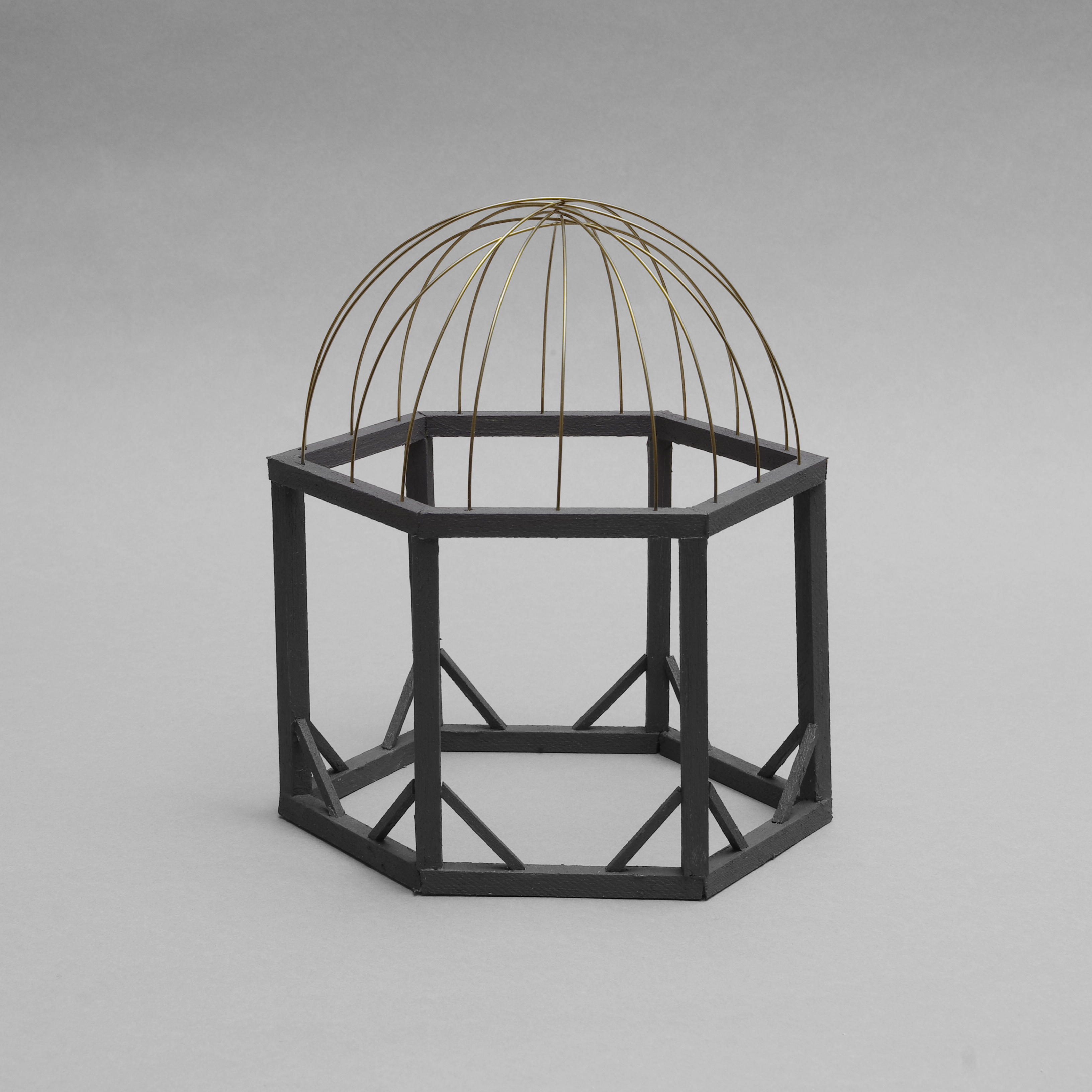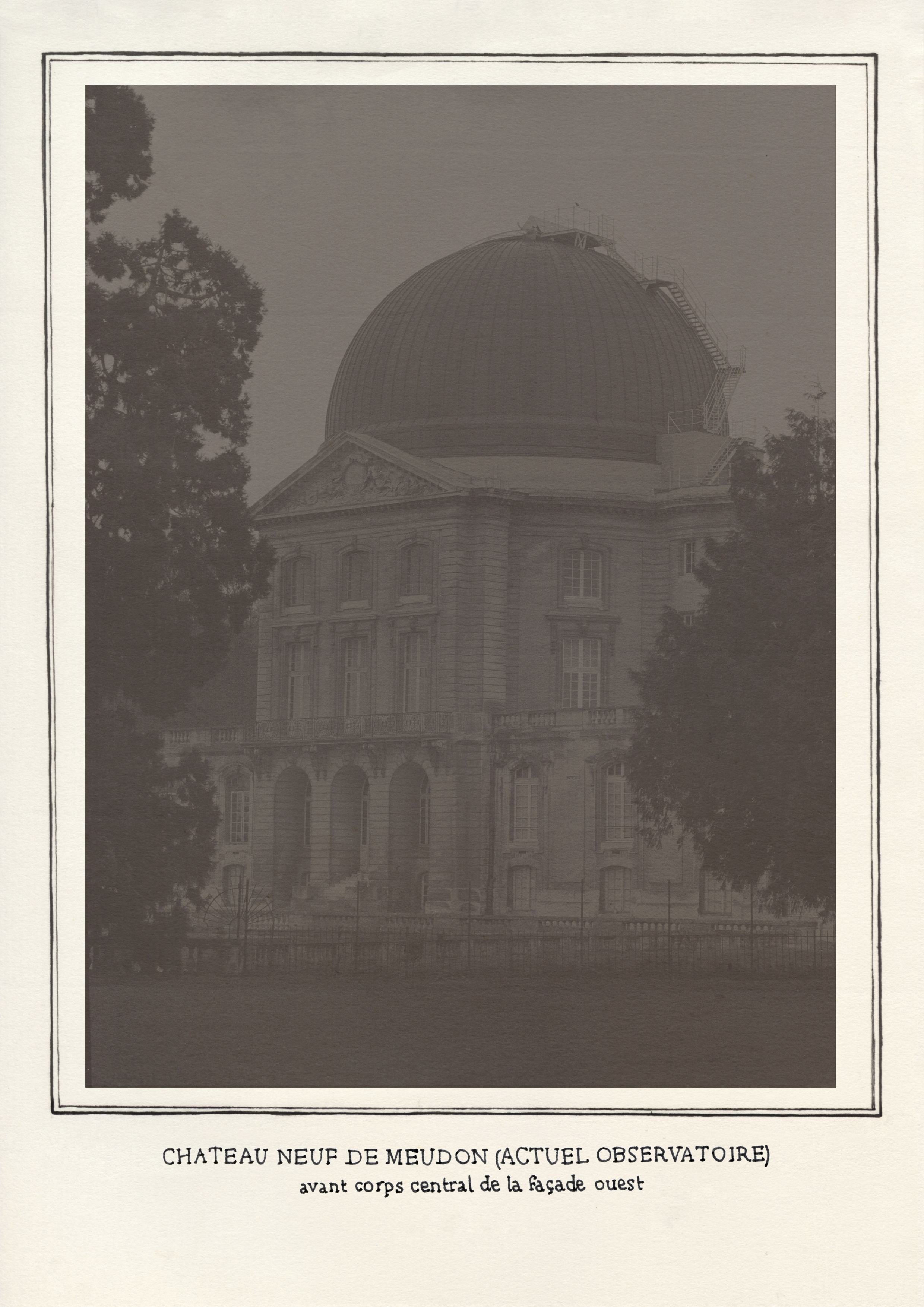Je regardais le plafond et soudain vis le ciel
( I Was Looking at the Ceiling and then I Saw the Sky)
2017
Chapter 2 of the project Demande à la poussière




Taking literally the title of John Adams' opera, I was looking at the ceiling and then I saw the sky, the chapter 2 of the series asks for dust, tells a human story linked to the one of the sky, resulting from the latter's actions. After the roof of his house collapses, the man finds himself in front of the sky and tries to understand how it functions. He studies it and finds in its observation a form of meditation, a process of recollection. Following the catastrophe, he is led to contemplate something "better than the spectacle of the calm or agitated sea, better than the spectacle of the mountains adorned with forests or crowned with perpetual snow, the spectacle of the starry sky attracts us, envelops us, speaks to us of the infinite, gives us the dizziness of the abyss" (Flammarion).
Although many of the sky-related images in the series are in the form of documents, they are not intended to convey knowledge but rather a poetic vision of the organisation of the universe, a surrender to an enterprise larger than ourselves. Some of the images produced are indeed photographs, others only decoys. Inspired by Nasmyth's images, which were situated between science and fiction, my images show this "mise-en-scène" already present in these photographs.
I am often content to divert a completed photograph to give it a new reality. This is the case of the photograph of the surface of the moon, which takes up the filiation made from the corpus of the grandiose and deserted landscape of the moon to the photographs reported a century earlier by Timothy O'Sullivan of the American West. Here, the mountain serves as a lunar surface. The photograph of the starry sky is nothing more than an accumulation of dust on a negative.
With these productions, which question the veracity of the photographic medium and guarantee the fictional character of the project, I try to push back the boundaries between truth and fiction, science and art. By referring to the world of astronomy, I aspire to the same desires as the surrealists, that is, to erase the border between dream and reality, the unconscious and the conscious and to achieve a symbiosis between scientific and magical thinking. I find in the study of the cosmos a poetic or metaphysical reflection that is part of the obsession with the flight of time.
![]()
![]()
Although many of the sky-related images in the series are in the form of documents, they are not intended to convey knowledge but rather a poetic vision of the organisation of the universe, a surrender to an enterprise larger than ourselves. Some of the images produced are indeed photographs, others only decoys. Inspired by Nasmyth's images, which were situated between science and fiction, my images show this "mise-en-scène" already present in these photographs.
I am often content to divert a completed photograph to give it a new reality. This is the case of the photograph of the surface of the moon, which takes up the filiation made from the corpus of the grandiose and deserted landscape of the moon to the photographs reported a century earlier by Timothy O'Sullivan of the American West. Here, the mountain serves as a lunar surface. The photograph of the starry sky is nothing more than an accumulation of dust on a negative.
With these productions, which question the veracity of the photographic medium and guarantee the fictional character of the project, I try to push back the boundaries between truth and fiction, science and art. By referring to the world of astronomy, I aspire to the same desires as the surrealists, that is, to erase the border between dream and reality, the unconscious and the conscious and to achieve a symbiosis between scientific and magical thinking. I find in the study of the cosmos a poetic or metaphysical reflection that is part of the obsession with the flight of time.




exhibition view at the MEP, Maison Européenne de la photographie, Paris, FRANCE, 2020




